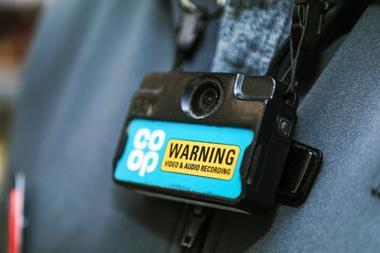Rebecca Field, trade mark attorney at intellectual property (IP) specialist HGF, reveals what retailers should think about when it comes to trade marks in China.
China is probably a country on your radar – whether you are already trading there, considering expanding into the market or using the country for manufacturing goods.
However, it is also a country with unique IP issues that need consideration and retailers need to act swiftly to ensure they are protected.
Our top tips consider the more common themes in China, with an emphasis on how retailers can navigate the trade mark system to their advantage and hopefully save money and headaches in the long run.
1. File quickly
Retailers must act swiftly to register brands in China as it operates a 'first-to-register' system. File your trade mark early and secure the date.
Even before you have any brand recognition or have penetrated the Chinese market, you should have a trade mark application in place to register the mark.
Any registration must cover your core goods and services, including retail services (as protectable under Chinese descriptions).
2. Transliteration and nicknames
Do not concentrate solely on the Latin script of the mark.
“A registration of a trade mark in Latin characters does not protect the same mark in Chinese characters”
A registration of a trade mark in Latin characters does not protect the same mark in Chinese characters. Consider how it is being used and register the Chinese script.
Chinese consumers also often give a Western brand a Chinese nickname.
Third parties have historically registered nicknames for well-known retailers and it then proves costly to obtain the registration back.
3. Copyright registrations
To improve your arsenal of IP in China, it is possible for retailers to register a logo under copyright in China.
In many cases, a copyright registration has been taken as evidence to prove the rights of the copyright owner.
You may have your trade mark registered but, to bolster your rights, you could consider copyright registration also.
4. Retail store formats
Retail store formats are recognised by the Chinese authorities, and in 2011 Apple Inc was successful in closing several fake shops that were not only using its trade marks, but also mimicking its stores' design, decor and employee uniforms.
This correlates with EU case law, which has also confirmed protection for Apple from store layout imitations.
5. Brand hijacking
Although protection against bad faith trade mark registrations has improved, China is unfortunately still well known for brand hijacking.
Brands such as Apple, Zara and New Balance have all fallen foul of this phenomenon.
In the case of the latter, a local Chinese shoemaker registered a New Balance Chinese trade mark first and then sued New Balance for trade mark infringement.
Any agreements with suppliers must be clear on IP ownership and executed in accordance with Chinese legal practice, such as using Chinese company stamps.
“A local Chinese shoemaker registered a New Balance Chinese trade mark first and then sued New Balance for trade mark infringement”
If you are aware of a third-party registration in place, retailers must consider cancellation actions to remove the problem.
6. Original equipment manufacturing (OEM)
Although many retailers may not actively trade in China, product will undoubtedly be sourced from China under so-called OEM supply agreements and many of these products will carry their brand name.
A recent court decision (concerning the Dongfeng Motor Corporation) has provided further comfort to retailers with large supply chains. It confirmed that OEM trade mark usage is not trade mark use in the Chinese market itself, and thus there is no infringement – so third parties cannot prevent the export of branded OEM product from China to third-party nations.
Retailers must know their suppliers and have contracts in place governing how any brands are used, so there is no sub-licensing or branded product going elsewhere.

Rebecca Field, trade mark attorney, HGF
Rebecca Field actively manages the global trade mark and design portfolios of retail and fashion industry clients, and is therefore able to offer clients a well-rounded view of IP issues.
She advises clients on the protection and management of their trade mark portfolios, encompassing all aspects of trade mark protection from clearance searches, prosecution and registering of trade marks to advising on watching, infringement and enforcement.
As part of her practice, Rebecca also files domain name actions and deals with custom notices in relation to counterfeit goods. She also has experience of working with retailers in protecting IP in their supply chains.


























